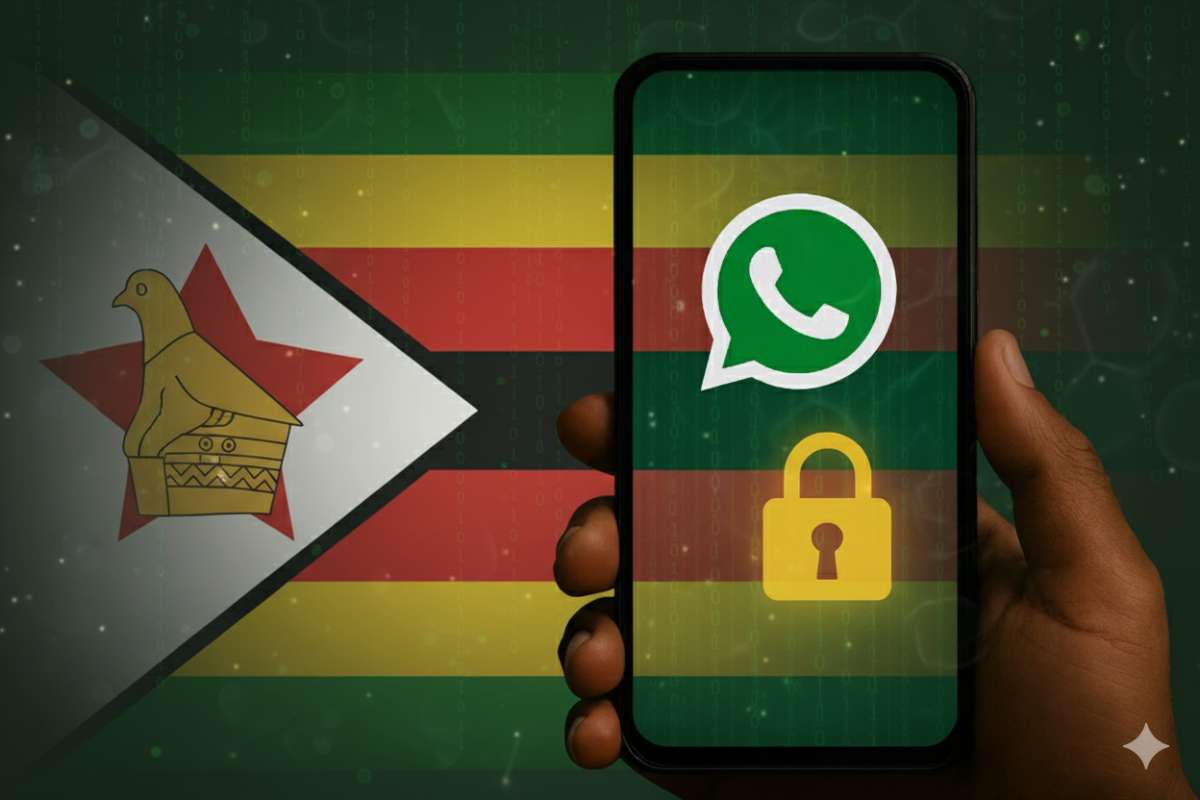Lately, Zimbabwe has seen a disturbing rise in WhatsApp hacks and scams. Almost every week, there’s a story circulating online someone’s WhatsApp account was taken over, friends were tricked into sending money, and the hacker vanished before anyone realised what happened. Last week, a few suspected scammers were actually caught and arrested. That’s encouraging, but the problem runs deeper. For most of us, WhatsApp isn’t just a chat app anymore it’s how we do business, how families communicate, how people send money and build trust. Losing that access even for a few hours can cause chaos.
So how are people getting hacked?
In many cases, it starts with something simple a text message. A hacker gets hold of your number and tries to register it on their own phone. You receive an SMS from WhatsApp with a six-digit verification code. Moments later, you get a message, maybe from someone you know or trust, saying, “Hey, I sent you a code by mistake, can you send it back?”
The moment you send the code, they gain access to your WhatsApp account. Within minutes, they start messaging your friends, pretending to be you, often asking for urgent financial help. In other cases, they trick mobile networks into issuing duplicate SIM cards, a tactic known as SIM-swapping, which lets them take full control of your number and your WhatsApp.
What makes this especially worrying in Zimbabwe is how deeply embedded WhatsApp is in our daily lives. From small businesses taking orders to families coordinating groceries or sending EcoCash, it’s a lifeline. When a hacker gets in, they’re not just reading your chats, they’re impersonating you to people who trust you. And once that trust is broken, it’s hard to rebuild.
How to secure your WhatsApp account
The good news is, protecting yourself doesn’t require advanced technical knowledge, just awareness and a few simple habits. The most important thing you can do is enable two-step verification on WhatsApp. It takes less than a minute. Go into settings, open the account tab, and turn on two-step verification. You’ll be asked to set a six-digit PIN. This extra layer means even if a hacker gets your SMS code, they still can’t log in without your secret PIN. It’s a simple but powerful shield.
Next, learn to recognise suspicious messages. WhatsApp will never ask you for a verification code or PIN. No genuine friend will either. If someone says, “I sent you a code by mistake,” just ignore the message or call them directly to confirm. Many scams fall apart once you pause and double-check before acting. The same goes for messages asking for urgent money transfers. If someone close to you sends a desperate request, stop and verify through a phone call or video chat. A quick call can save you from a painful loss.
Another important thing is keeping your privacy settings tight. You can limit who sees your profile photo, status, and last-seen information, sometimes hackers use that visibility to study potential victims. Avoid joining unknown WhatsApp groups, and definitely don’t install unofficial WhatsApp apps that promise extra features. Many of them secretly collect data or open the door for malware.
Also, take time to secure your actual phone. Set a proper screen lock; whether PIN, pattern, or fingerprint and make sure your apps and Android or iPhone software are updated. Some attacks rely on outdated systems with weak security. If possible, speak to your network provider about SIM-swap protection. Tell them you don’t want your number transferred without strong ID checks. In Zimbabwe, where SIM cards are sometimes re-issued too easily, this step is crucial.
Another simple but crucial habit is to never click on suspicious links or install unknown apps. Many WhatsApp hacks begin with a message containing a strange link maybe promising free airtime, rewards, or leaked videos. The moment you tap it, you could be redirected to a fake site designed to steal your login details or install spyware on your phone. Stick to the official Play Store or App Store when downloading apps, and avoid modified or “lite” versions of WhatsApp circulating online. These fake apps often hide malware that silently copies your data or compromises your account. If something feels off or too good to be true, it probably is, delete it immediately.
What to do if your account is hacked
If you ever lose access to your WhatsApp or suspect it’s been hacked, don’t panic. Reinstall the app and log in again using your number, this will usually kick the intruder out. Let your contacts know you were hacked so they ignore fake messages. If money was stolen, report the case to your bank or EcoCash and file a complaint with the local police. The faster you act, the more likely you are to contain the damage.
Ultimately, protecting your WhatsApp is about protecting your identity. The scammers rely on one thing - your trust. They know that when a familiar name pops up, people tend to drop their guard. But with just a bit of caution, you can outsmart them easily. Enable two-step verification, stay alert, and think twice before sharing any code or sending money through a message.
In Zimbabwe, where WhatsApp is as common as airtime, staying secure isn’t just a tech issue, it’s part of everyday life. So take five minutes right now, check your settings, and help your friends and family do the same. Because when one of us is protected, we all become a little safer.
Join WhatsApp Channel
Stay up-to-date with the latest technology news and trends by joining our exclusive WhatsApp channel! Get instant access to breaking news, insightful articles
 TechNews
TechNews







Please login or create account to comment.